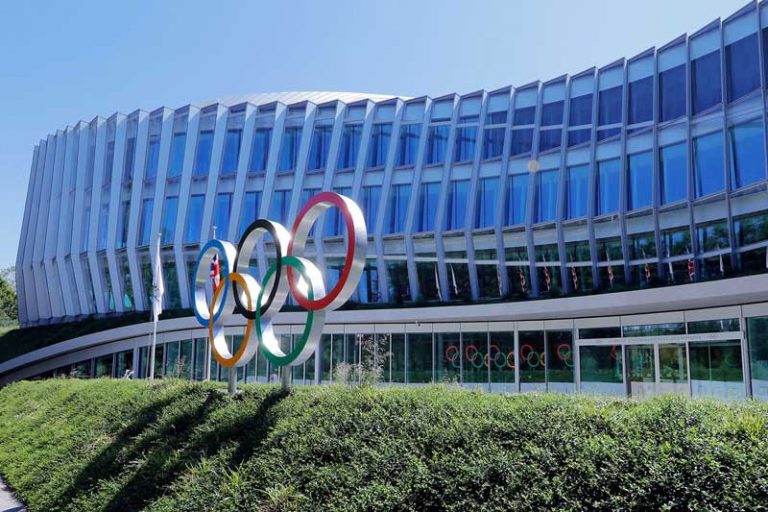When Salt Lake City hosted the first Olympic Winter Games of the 21st century in 2002, it may have seemed like a one-and-done scenario. But surprising news from the International Olympic Committee (IOC) last week could set the stage for the Utah capital becoming a frequent destination for the event through to 2100.

On Tuesday the IOC’s Future Host Commission and Executive Board decided to reset the 2030 Olympic bid race so the impact of climate change on hosts could be further explored, and the bid process readjusted accordingly. Now being considered are minimum climate benchmarks, discouraging new venue construction, and implementing a permanent pool of rotating hosts.
IOC’s Head of bid city relations Jacqueline Barrett discussed the new direction and cancelation of the current timelines with three former hosts who are now vying for the 2030 edition of the the Winter Games including Salt Lake City, Sapporo in Japan and Canada’s British Columbia.
“I think we all, collectively, had a smile on our faces as we came out of that news,” United States Olympic and Paralympic Committee (USOPC) CEO Sarah Hirshland told reporters Monday following a Board of Directors meeting held in Colorado Springs last week.
“Salt Lake and Utah are so well positioned long term, not just looking at ’30 and ’34 as you know but even longer than that,” Hirshland, who attended the Olympic Summit in Lausanne, Switzerland Friday, added.
Academic studies have revealed that by 2050 former Winter Games hosts will no longer have the required snowfall or temperatures to accommodate snow events, and regions with the necessary infrastructure and climate-readiness to stage will be very limited. The IOC now recognizes traditional methods of siting the quadrennial event are no longer adequate as the climate crisis develops. It sees the selection of a rotating pool of qualified hosts as a possible solution.
But Hirshland cautioned “it would be incredibly premature to either suggest that Salt Lake would be or wouldn’t be a candidate in that regard.”
“I think that the IOC is in the very, very early stages of contemplating where are the markets that have the infrastructure as well as the climate to be able to, on a regular cadence, host the Winter Games.
“If we can say at this point in time, Salt Lake could be in that position.
“That is far from suggesting that we understand the details of what that might look like or that anyone in Salt Lake has explored anything beyond what were focused on right now which is looking at ’30 and ’34.”
The surprise announcement by the IOC upended the 2030 bid race that had been in its late stages, with the list expected to instead be narrowed to targeted hosts. Now the election date has been postponed indefinitely and the campaign to find future hosts has been reopened to new candidates.
IOC President Thomas Bach said Wednesday that he now supports a double-awarding of the ’30 and ’34 Games, backtracking from comments earlier in the year when he said he would leave the election of the 2034 host to his successor to encourage good governance. Bach’s term ends in 2025.
A dual allocation would help promote the stability of the Winter Games and accelerate the process for choosing a pool of permanent hosts, something Bach says will follow the possible dual award.
“I think it would be too late in ‘26 for a double award. Four years, even if you have extremely well prepared cities and regions four years is pretty short,” Bach said.
The USOPC has been targeting the 2034 Games for Salt Lake City instead of the earlier edition to leave a gap following the scheduled Los Angeles 2028 Summer Games – something that is said to financially benefit both projects in terms of sponsorships and other revenues. But Salt Lake City has always maintained that it will step in for 2030 if that’s what the Olympic Movement needs.
With Sapporo feeling the backlash of the Tokyo 2020 corruption scandal that has soured public opinion in Japan, and BC’s Four Nations bid losing required provincial funding – The Utah capital was likely to be called upon for those earlier Games.
By considering a double allocation it appears the Future Host Commission is willing to go with a Salt Lake City 2034 Games.
“Absolutely, yes.” Hirshland said of the USOPC support of a dual award.
“The sooner cities, region, states and even countries have certainty they can begin to plan accordingly.
“I think there’s an absolute advantage to having certainty in what is to come in the future allowing the community to begin to prepare.”
The IOC said it will not elect any Winter Games host at it’s all-members Session set to be held in Mumbai, India next fall. That leaves the following Session, just ahead of the Paris 2024 Olympics in July, as the next possible election date.


